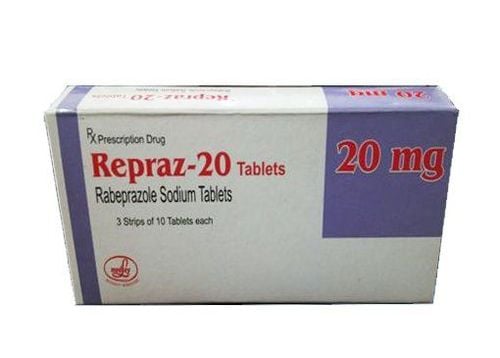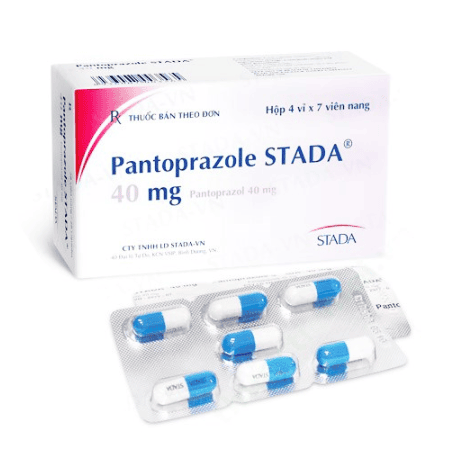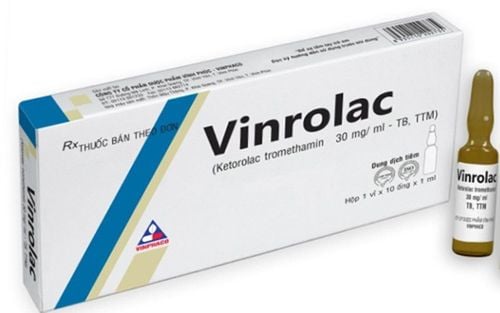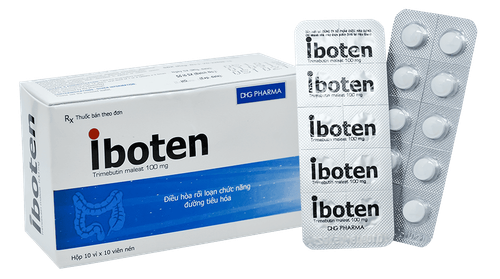This is an automatically translated article.
The article was professionally consulted by Specialist Doctor I Dong Xuan Ha - Department of Medical Examination and Internal Medicine - Vinmec Ha Long International General Hospital.Gastroesophageal reflux disease is often silent and long-lasting. Therefore, creating subjective psychology for patients, misjudging the nature of the disease. Gastroesophageal reflux disease can progress and leave irreversible damage if not diagnosed and treated promptly. Learning the signs of GERD can help you make lifestyle changes and get treatment early, thereby limiting damage and improving quality of life.
1. What is Gastroesophageal Reflux?
Gastroesophageal reflux disease or Gastroesophageal Reflux Disease (GERD) is a condition in which gastric juices (including food, digestive enzymes, gas...) back up into the esophagus.
Under normal physiological conditions, every time we eat and drink, food moves from the mouth to the esophagus, the lower esophageal sphincter opens to allow food to go down to the stomach, then automatically closes to prevent food poisoning. allow food and gastric juices to regurgitate. Gastroesophageal reflux disease occurs when gastric juices back up, causing damage to the esophagus, larynx, mouth, ..
2. Signs of gastric reflux
2.1. Heartburn, heartburn, heartburn Ợ Frequent gas is a sign of gastroesophageal reflux disease. Heartburn is a burning sensation from the stomach (epigastric region), under the breastbone, to the neck.
sour is often accompanied by belching and heartburn, leaving a sour taste in the mouth.
The above symptoms often appear when eating, when the stomach is full, indigestion, sleeping, especially at night.
2.2 Nausea, vomiting Acid reflux into the throat or mouth, throat irritation causes nausea.
This condition can occur at any time but is usually most severe at night due to the sleeping position and when the parasympathetic nervous system is more active.
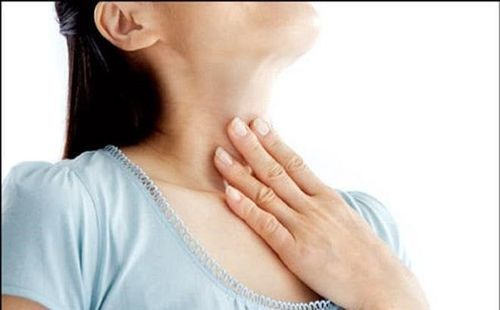
2.3 Epigastric chest pain You may have a feeling of pressure, tightness in the chest, and through the back and arms.
Caused by acid reflux irritating the nerve fiber endings on the surface of the esophageal mucosa, the pain sensor will give a signal like chest pain.
You need to avoid confusion with cardiovascular diseases and lung diseases when they have the same symptoms.
2.4 Difficulty swallowing Gastroesophageal reflux with great frequency causes edema, swelling, narrowing of the diameter of the esophagus. Therefore, the patient feels difficult to swallow, stuck in the neck.
2.5 Hoarseness and cough Due to damage to the vocal cords from exposure to stomach acid. Patients with gastroesophageal reflux disease will have hoarseness due to edema of the vocal cords, difficulty speaking and long-term coughing due to inflammatory fluid flowing down the bronchi.
2.6 The mouth produces a lot of saliva The mouth with a lot of saliva is the body's self-protective mechanism in the mouth to neutralize the amount of acid that comes up.
In addition to the above 6 common signs of gastroesophageal reflux, patients may also experience other symptoms such as indigestion, bloating, asthma, pneumonia, ...
3. Causes of gastroesophageal reflux disease
The cause of gastroesophageal reflux disease is not outside of two mechanisms: Weakness of the lower esophageal sphincter and an excess of acid or overload inside the stomach. In simple terms, we compare the stomach to a barrel, the esophageal sphincter acts as the lid of the barrel. Gastroesophageal reflux occurs when there is a phenomenon of "weak keg full".
The causes leading to the weakening of the lower esophageal sphincter:
● Side effects of Western drugs: Holecystokinine, glucagon, aspirin, ibuprofen and blood pressure drugs ...
● Living habits of using substances stimulants and addictions such as: caffeine, alcohol, tobacco,...
● Diseases: Damage to the esophageal parasympathetic nervous system, infectious diseases in the esophagus causing fibrosis, weakness of the esophageal sphincter or genetic diseases, diaphragmatic hernia ...
Causes of excess acid or overload inside the stomach
● Gastropathy: Many stomach diseases are the cause of reflux Gastroesophageal reflux such as gastric ulcer, gastric mucosal erosion, gastric cancer or gastric pyloric stenosis...
● Eating habits: Overeating, eating a lot of indigestible food (water) gas, fast food, eggs, milk,...)
Some other causes of gastroesophageal reflux
● Being overweight or obese increases pressure on the abdomen
● Pregnancy
● Stress . ..

4. Harm of gastroesophageal reflux disease
Stomach is the place where food is stored and digested. To do the job of digesting food, the stomach secretes a very strong acid, hydrochloric acid, which helps activate the enzyme pepsin, which plays a key role in protein digestion. That's why the stomach itself has a very strong barrier that prevents acids and enzymes from coming back to "eat away" the stomach. However, other agencies do not have this protection mechanism. Therefore, when in contact with gastric juice, the mucosa is quickly damaged and eroded, then edema, inflammation, scarring and adhesions, worse, cancer. Specifically:
Esophageal ulcers: The sores can bleed, cause pain and make it difficult to swallow.
Narrowing and scarring of the esophagus: when the damage heals, it can leave scars, causing narrowing of the esophagus, blocking the flow of food.
Barrett's esophagus: a condition in which the squamous tissue in the lower esophagus is transformed into columnar tissue with intestinal-like cells (intestinal metaplasia). This process is the result of ongoing damage to the lining of the esophagus and the most common cause is gastroesophageal reflux. These altered cells can potentially become cancerous. Therefore, people with Barrett's esophagus are advised to have routine gastroscopy to watch for early warning signs of cancer.
Esophageal cancer: There are 2 main types of esophageal cancer: adenocarcinoma and squamous cell carcinoma. Among them, a major risk factor for esophageal cancer is Barrett's esophagus. It is estimated that 1 in 10 to 20 people with Barrett's esophagus will develop esophageal cancer after 10 to 20 years.
Extraesophageal manifestations: pharyngitis, laryngitis, recurrent otitis media. Asthma aggravation. Corrosion of teeth, acid reflux into the lungs can cause pulmonary fibrosis....
5. Gastroesophageal reflux treatment method
Treatment of gastroesophageal reflux disease includes lifestyle changes, dietary changes, medical treatment, surgical treatment and other procedures.
Non-drug method is always recommended by doctors to their patients. A reasonable lifestyle or a scientific diet significantly reduces the frequency of gastroesophageal reflux:
Eat small meals. It is recommended to eat more often than to eat small meals for people with signs of gastroesophageal reflux. Choose alkaline, acid-neutralizing foods such as starchy foods (bread, oatmeal) or easily digestible proteins. Limit foods that stimulate acid secretion or stimulate the lower esophageal sphincter: fruits with high acid content (lemon, orange, pineapple...) and less dairy products. Reduce the use of high-fat foods; spicy food. Do not smoke, drink alcohol, carbonated drinks, do not use stimulants. Maintain a reasonable weight. Do not lie down or work immediately after eating. Relaxing and reducing stress can clearly reduce the symptoms of GERD.

Department of Endoscopy - Gastroenterology is one of the key specialties at Vinmec International General Hospital. To avoid the risk and timely treatment of gastroesophageal reflux, please make an appointment with the Hospitals of the National Health System for the best service.
Please dial HOTLINE for more information or register for an appointment HERE. Download MyVinmec app to make appointments faster and to manage your bookings easily.






